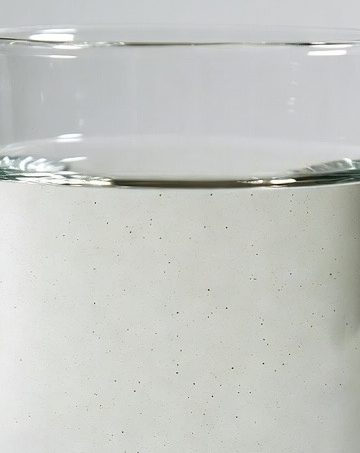Testing food and drinks for contaminants like PFAS, microplastics, and other harmful substances is essential for public health and environmental protection. PFAS, known as “forever chemicals,” and microplastics, which accumulate in the food web, pose significant risks to human health, including cancers, immune system disruption, and metabolic disorders. These pollutants enter food through packaging, water, […]
Tag: pfas
PFAS in Soil & Water: Health Dangers, EPA Rules, and Cleanup
PFAS, known as forever chemicals, contaminate nearly all soils worldwide through rain, dust, landfill leachate, biosolids, irrigation water, and firefighting foam (AFFF). Common types include PFOA, PFOS, PFHxS, GenX, and shorter-chain PFBA/PFBS. They persist due to strong carbon-fluorine bonds, sorb to soil, leach into groundwater, and move via plant uptake. Short-chain PFAS translocate to leaves; […]
3M to Pay $450M for New Jersey PFAS Pollution Cleanup
In May 2025, 3M agreed to pay up to $450 million to settle New Jersey’s PFAS contamination claims, one of the state’s largest environmental settlements. The deal targets pollution from “forever chemicals” at 3M’s Pennsville and Sayreville sites, linked to health risks like kidney, liver, and testicular cancer, plus autoimmune and developmental issues. Payments, starting […]
Best Water Filters to Remove PFAS, Lead & Heavy Metals
Most home water filters struggle to remove tough contaminants like PFAS (forever chemicals), heavy metals (lead, mercury, arsenic), and pharmaceuticals from tap water. These pollutants, from industrial runoff, aging pipes, or wastewater, pose health risks like cancer, developmental issues, and hormonal imbalances. Basic pitcher or faucet filters handle chlorine and sediments but fail against PFAS […]
POPs in Body Fat: Health Risks & How to Reduce Them
Persistent organic pollutants (POPs) like PCBs, DDT, and PFAS accumulate in the fat of overweight and obese individuals, increasing risks of hormone disruption, immune issues, and chronic diseases such as diabetes, heart disease, and fatty liver disease. These lipophilic toxins, found in contaminated foods like farmed salmon and industrial byproducts, build up in adipose tissue, […]
Dangers of Regular Toilet Paper: Switch to Organic
Conventional toilet paper can harm your health and the environment due to toxic chemicals like chlorine, dioxins, and PFAS used in bleaching and production. These carcinogens and endocrine disruptors may cause cancer, reproductive issues, skin irritation, and immune system damage. Daily use can lead to allergic reactions, yeast infections, and hormonal imbalances, especially for sensitive […]
Synthetic Socks Health Risks: Toxins, Effects & Safer Options
Synthetic socks, made from polyester, nylon, and spandex, contain toxic chemicals like BPA, phthalates, PFAS, and disperse dyes, posing health risks through skin contact. These substances can cause allergic reactions, itchy skin, eczema, and fungal infections like athlete’s foot. Long-term exposure may lead to endocrine disruption, affecting hormones and increasing risks of infertility, obesity, type […]
Chemicals in Tap Water: Contaminants, Risks, & Solutions
Tap water often contains chemicals like chlorine, fluoride, lead, arsenic, nitrates, and PFAS, which come from agricultural runoff, industrial discharge, and aging pipes. These contaminants can cause health issues, including cancer, neurological damage, and hormonal disruption, especially in children and pregnant women. The EPA regulates water quality under the Safe Drinking Water Act, but outdated […]
Oat Milk: Mostly Water, PFAs, and Contaminants Exposed
Oat milk has surged in popularity as a creamy, versatile plant-based milk, celebrated as a sustainable dairy alternative that caters to vegans, lactose-intolerant individuals, and environmentally conscious consumers alike. With its smooth texture and subtle sweetness, it’s become a staple in coffee shops, kitchens, and grocery aisles. However, beneath the frothy surface lies a complex […]
Why is Filtered Water Not Pure? | Q&A
Filtered water is not pure because it may still contain trace amounts of impurities such as microplastics, PFAS (per- and polyfluoroalkyl substances), and fluoride. Long answer: Filtered water undergoes a process to remove various impurities and contaminants, making it safer and more pleasant to drink than untreated water. However, achieving absolute purity is challenging due […]










